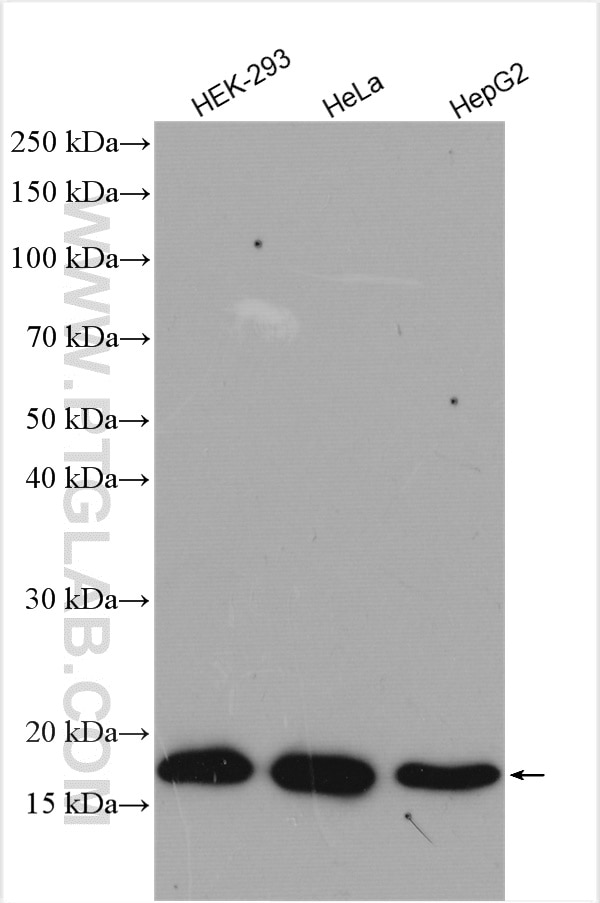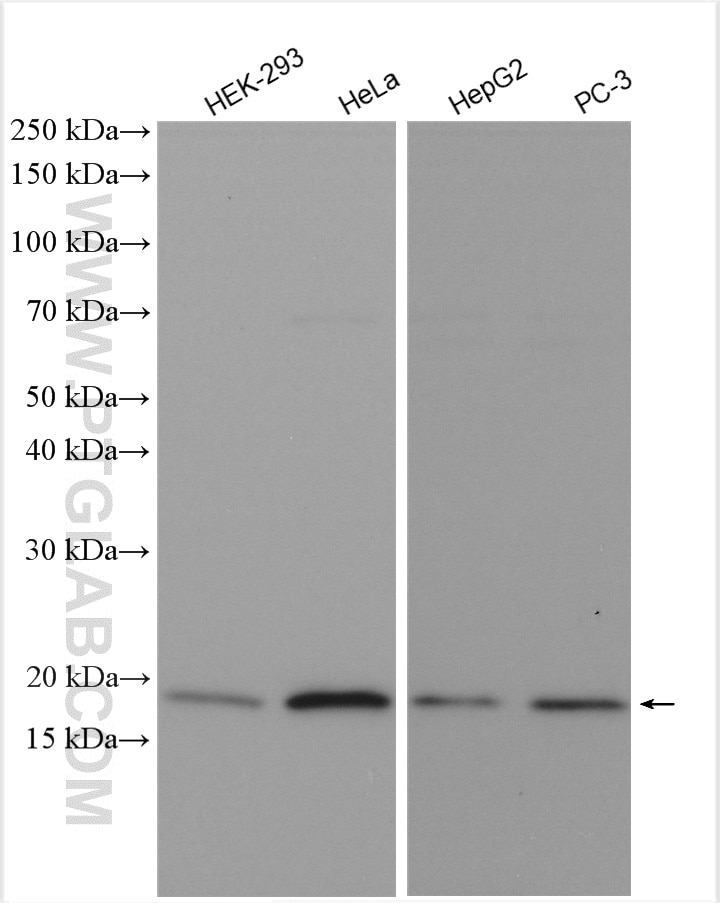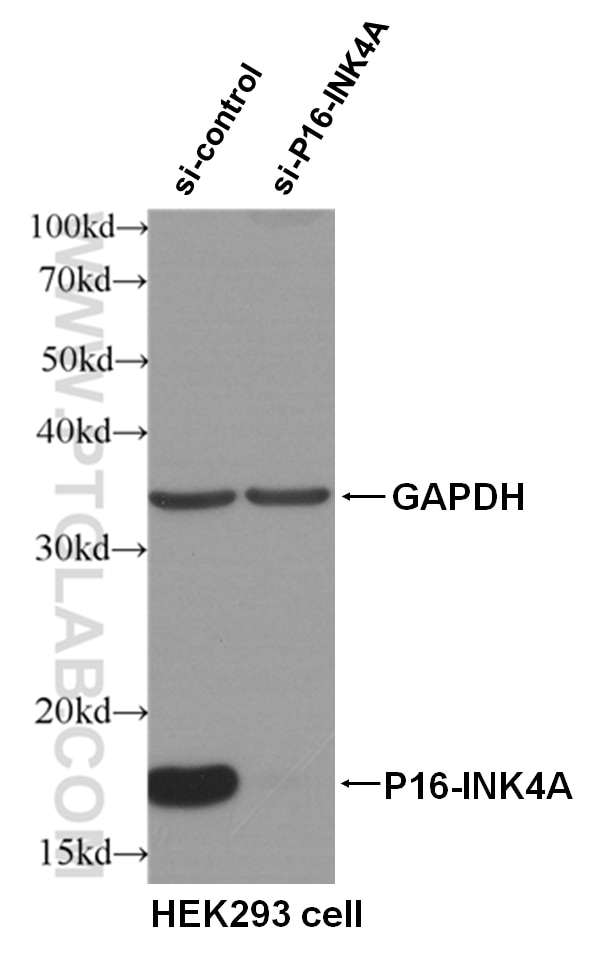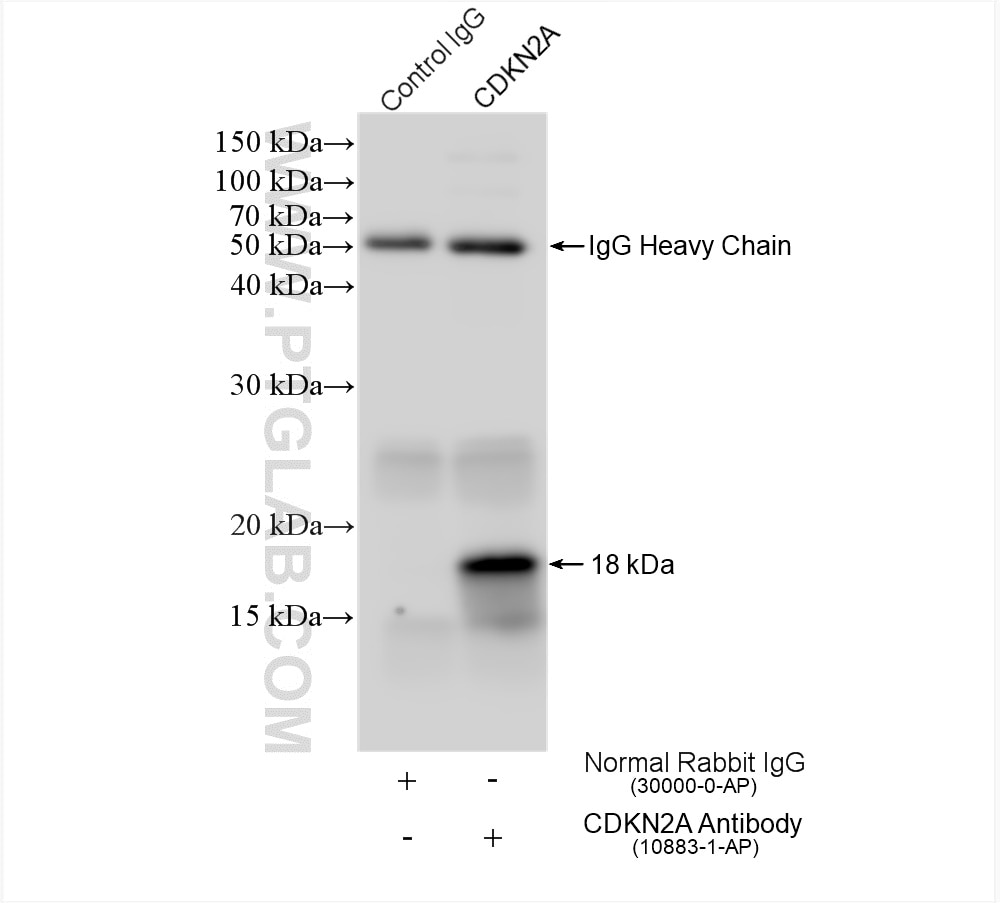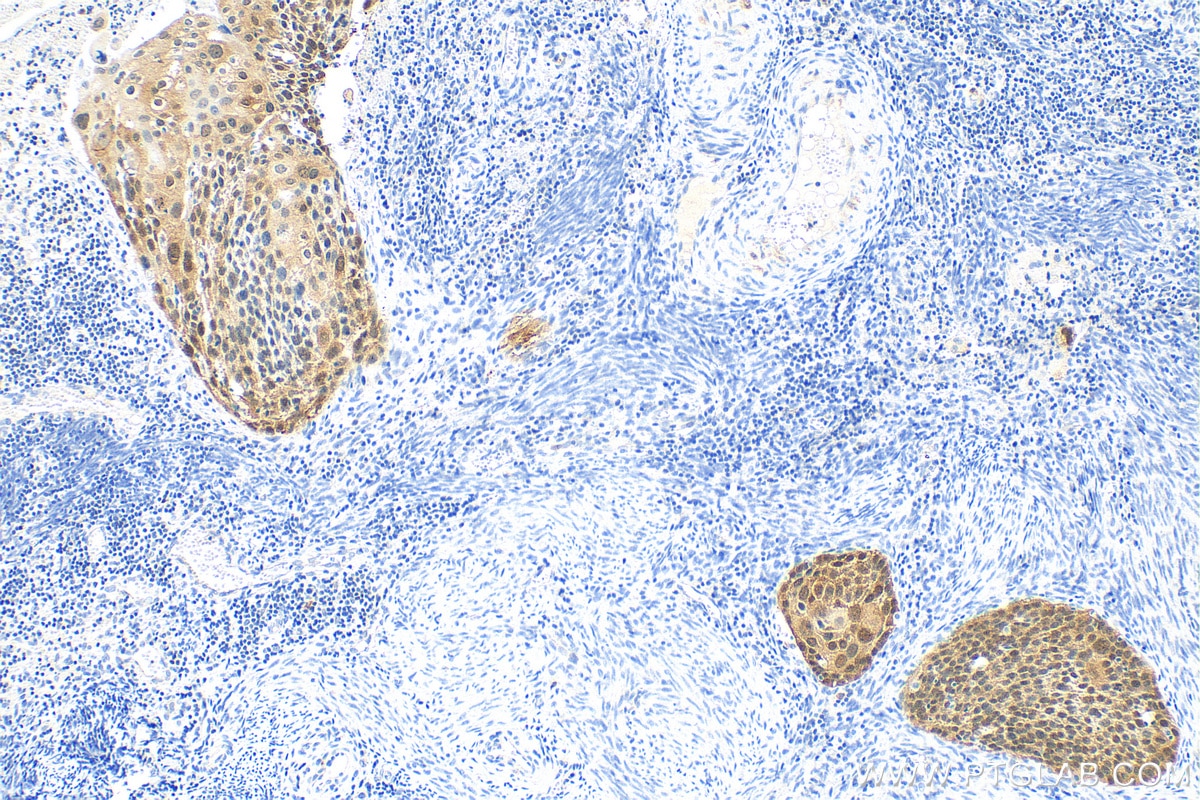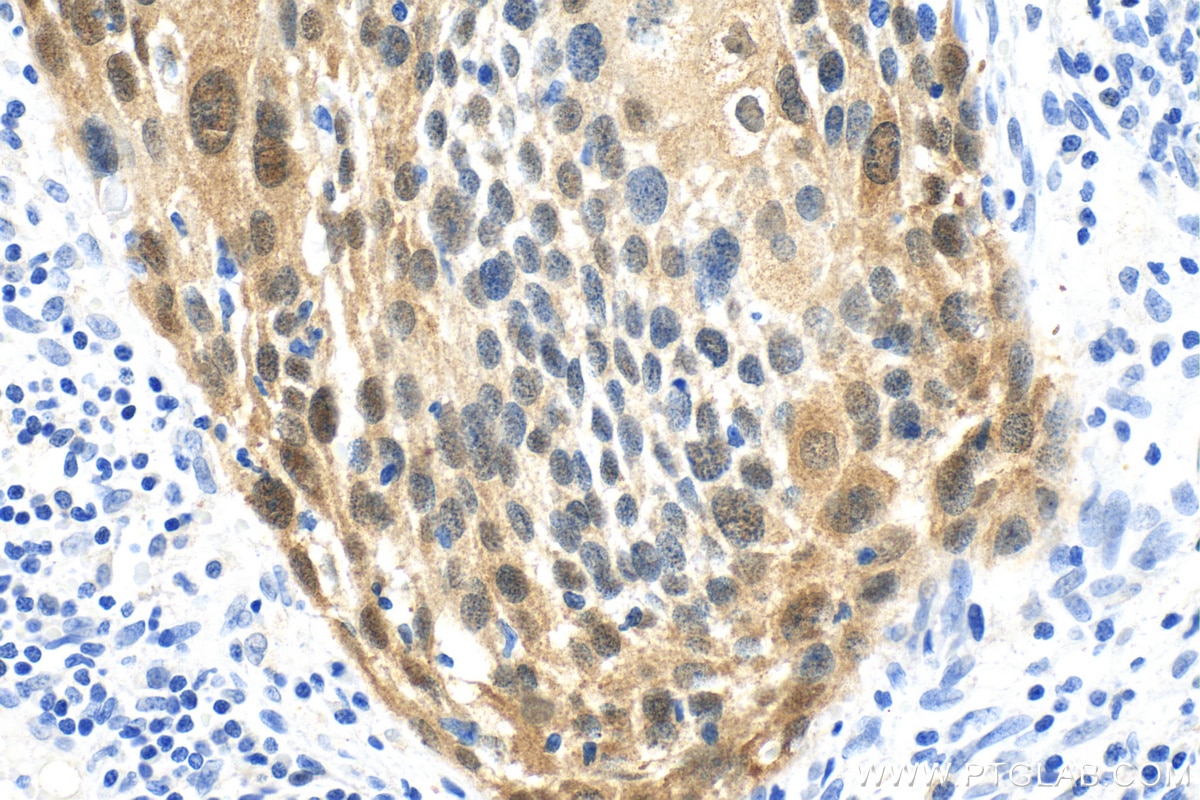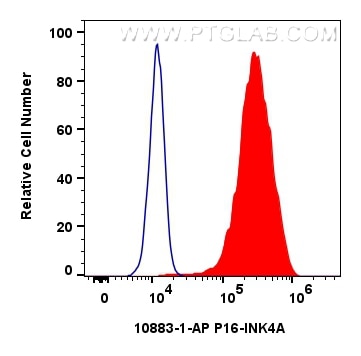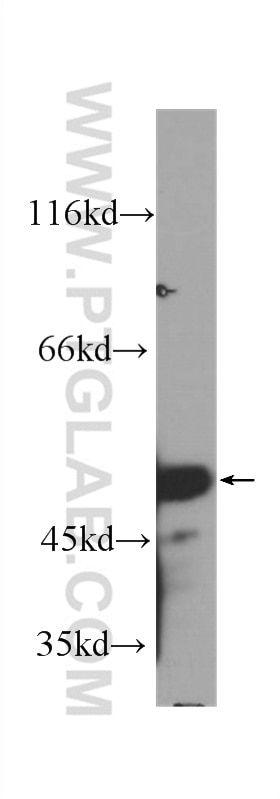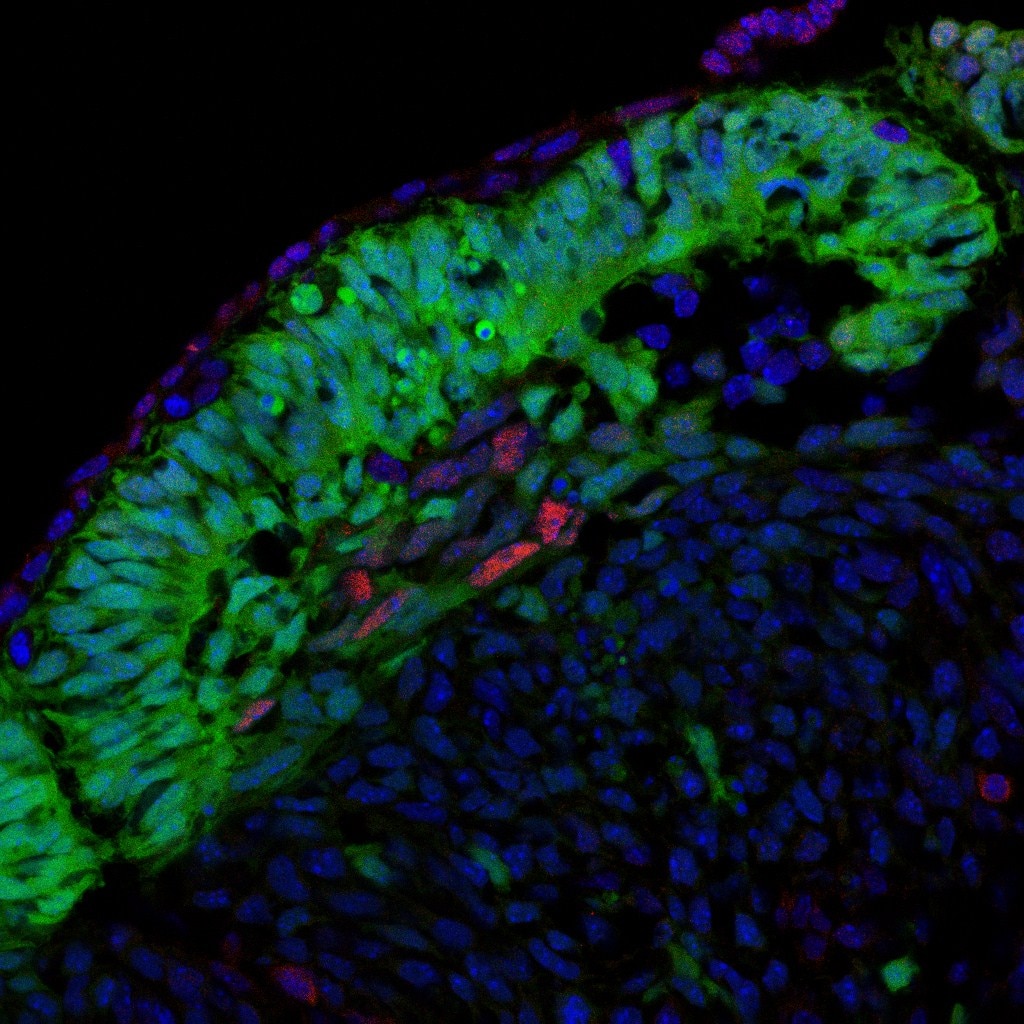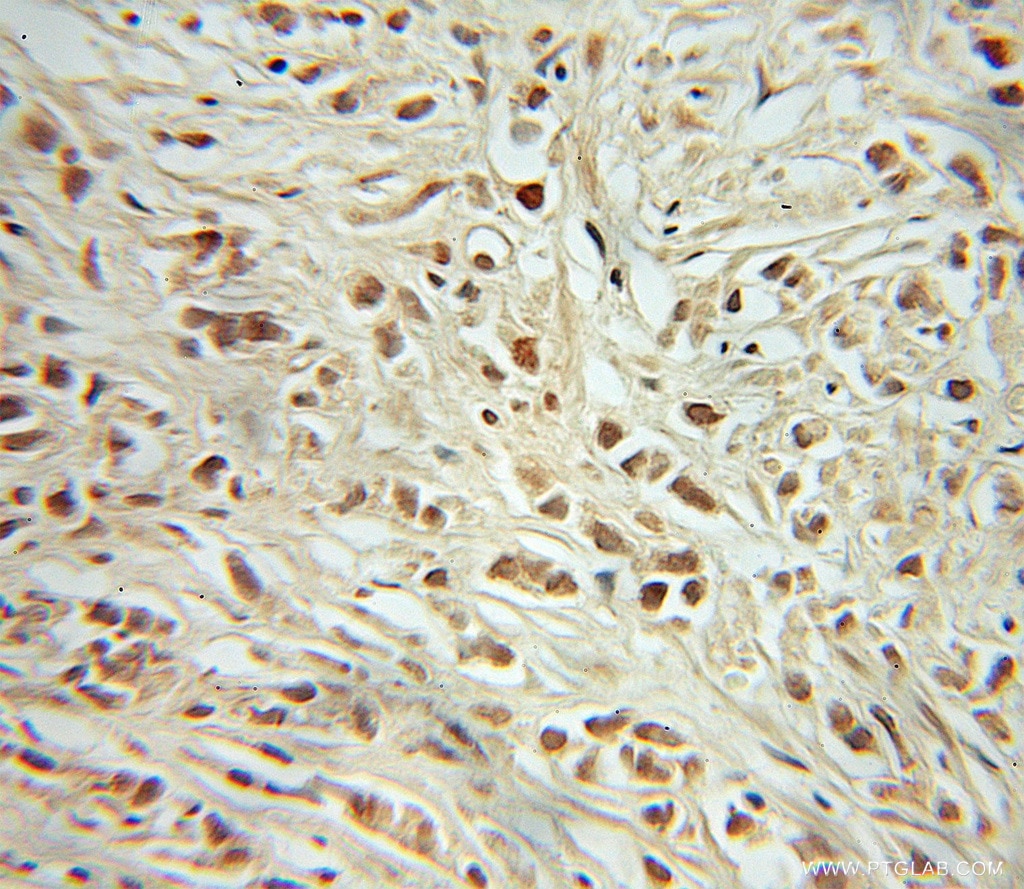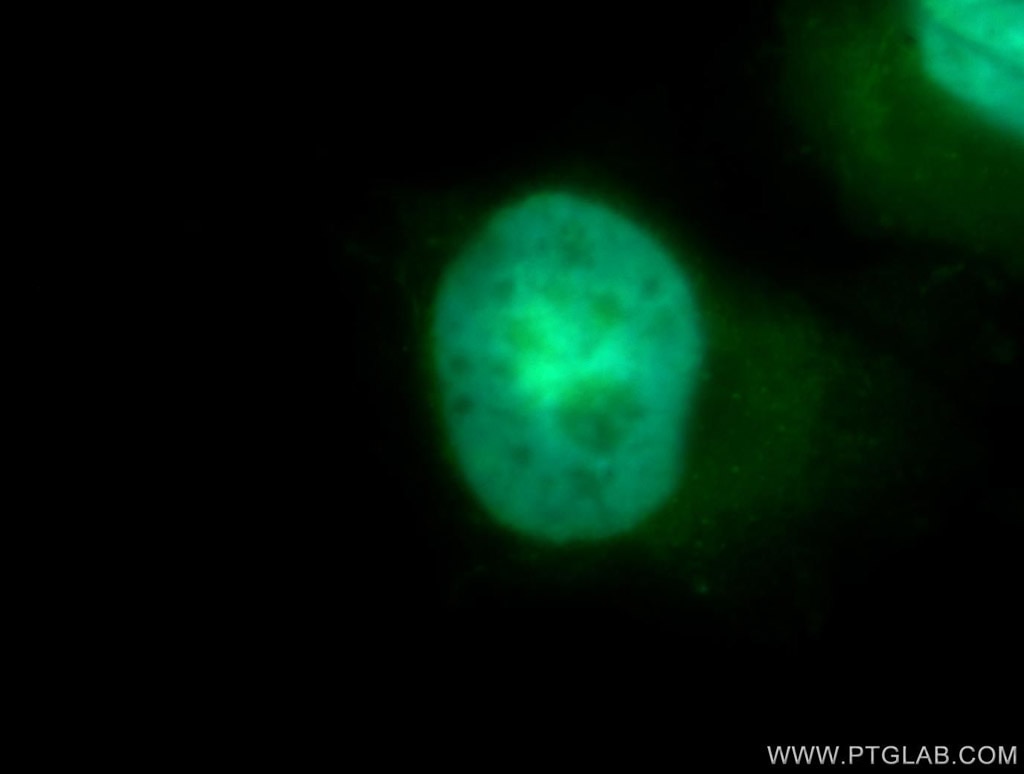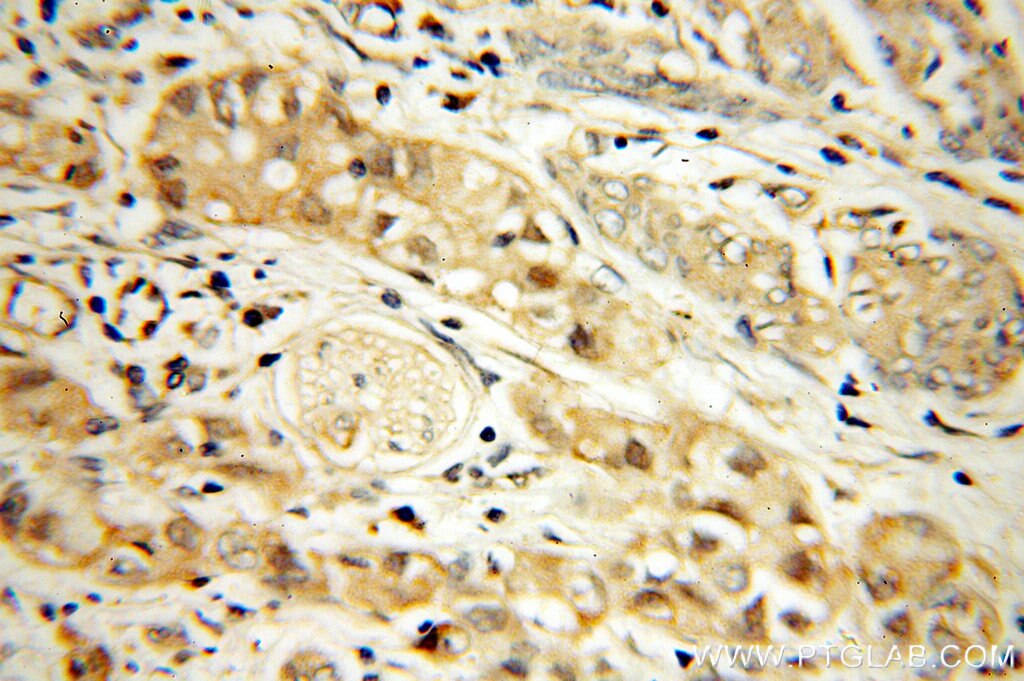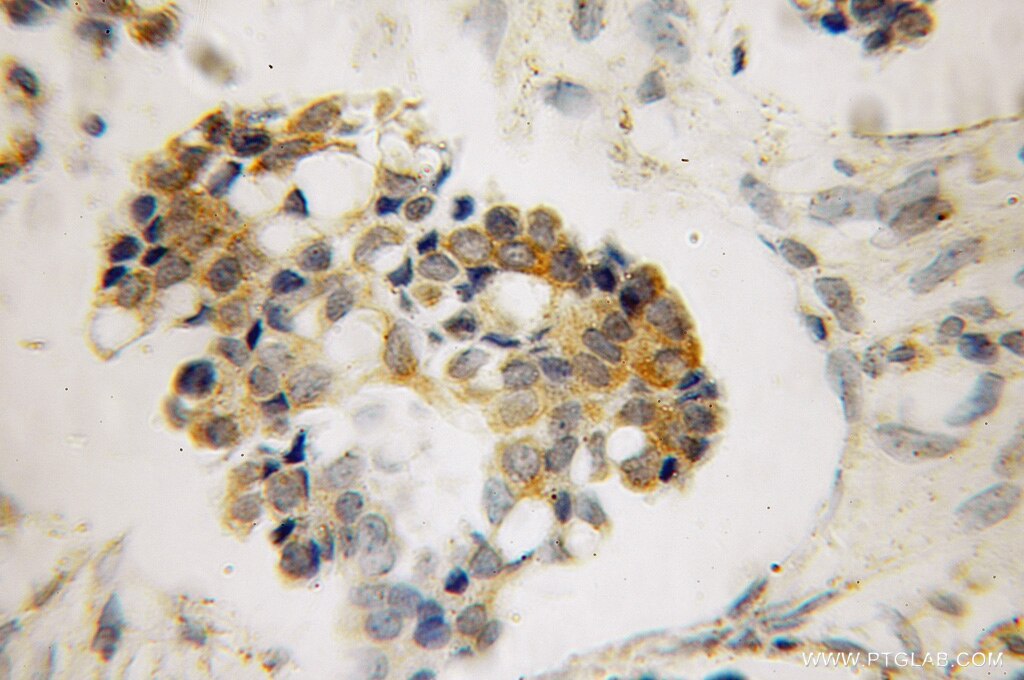- Phare
- Validé par KD/KO
Anticorps Polyclonal de lapin anti-P16-INK4A
P16-INK4A Polyclonal Antibody for WB, IHC, FC (Intra), IP, ELISA
Hôte / Isotype
Lapin / IgG
Réactivité testée
Humain et plus (2)
Applications
WB, IHC, FC (Intra), IP, ELISA, Cell treatment
Conjugaison
Non conjugué
334
N° de cat : 10883-1-AP
Synonymes
Galerie de données de validation
Applications testées
| Résultats positifs en WB | cellules HEK-293, cellules HEK293, cellules HeLa, cellules HepG2, cellules PC-3 |
| Résultats positifs en IP | cellules HEK-293, |
| Résultats positifs en IHC | tissu de cancer du col de l'utérus humain, il est suggéré de démasquer l'antigène avec un tampon de TE buffer pH 9.0; (*) À défaut, 'le démasquage de l'antigène peut être 'effectué avec un tampon citrate pH 6,0. |
| Résultats positifs en FC (Intra) | cellules HeLa, |
Dilution recommandée
| Application | Dilution |
|---|---|
| Western Blot (WB) | WB : 1:1000-1:8000 |
| Immunoprécipitation (IP) | IP : 0.5-4.0 ug for 1.0-3.0 mg of total protein lysate |
| Immunohistochimie (IHC) | IHC : 1:1000-1:4000 |
| Flow Cytometry (FC) (INTRA) | FC (INTRA) : 0.40 ug per 10^6 cells in a 100 µl suspension |
| It is recommended that this reagent should be titrated in each testing system to obtain optimal results. | |
| Sample-dependent, check data in validation data gallery | |
Applications publiées
| KD/KO | See 1 publications below |
| WB | See 272 publications below |
| IP | See 1 publications below |
| FC | See 2 publications below |
Informations sur le produit
10883-1-AP cible P16-INK4A dans les applications de WB, IHC, FC (Intra), IP, ELISA, Cell treatment et montre une réactivité avec des échantillons Humain
| Réactivité | Humain |
| Réactivité citée | canin, Humain, singe |
| Hôte / Isotype | Lapin / IgG |
| Clonalité | Polyclonal |
| Type | Anticorps |
| Immunogène | P16-INK4A Protéine recombinante Ag1328 |
| Nom complet | cyclin-dependent kinase inhibitor 2A (melanoma, p16, inhibits CDK4) |
| Masse moléculaire calculée | 16 kDa |
| Poids moléculaire observé | 16-18 kDa |
| Numéro d’acquisition GenBank | BC021998 |
| Symbole du gène | p16 INK4A/CDKN2A |
| Identification du gène (NCBI) | 1029 |
| Conjugaison | Non conjugué |
| Forme | Liquide |
| Méthode de purification | Purification par affinité contre l'antigène |
| Tampon de stockage | PBS avec azoture de sodium à 0,02 % et glycérol à 50 % pH 7,3 |
| Conditions de stockage | Stocker à -20°C. Stable pendant un an après l'expédition. L'aliquotage n'est pas nécessaire pour le stockage à -20oC Les 20ul contiennent 0,1% de BSA. |
Informations générales
Background
p16 is an important cell cycle regulator and acts as a tumor suppressor. It may also be referred to as one of a number of synonyms, including p16INK4a and cyclin-dependent kinase inhibitor 2A.
What is the molecular weight of P16?
16kDa. P16 is encoded by the CDKN2A gene in humans and is a chain comprising 148 amino acids.
What is the function of p16?
P16 inhibits cells from progressing from G1 into S phase, binding to cyclin-dependent kinase 4 (CDK4) and inhibiting its kinase ability, so that it cannot phosphorylate the retinoblastoma tumor suppressor (RB). Without this phosphorylation, RB does not activate downstream genes, so the G1/S checkpoint cannot be passed and the cell does not proliferate (PMID: 8259215).
What is the role of p16 in senescence?
In senescence, cells are irreversibly arrested in the cell cycle. P16 is expressed more highly in aging tissue, is associated with intrinsic cellular aging signals such as telomere shortening, and can therefore be used as a marker of senescence (PMID: 9244355; PMID: 19535234). Due to its role in cell cycle arrest, p16 drives the initiation and maintenance of a cellular senescent phenotype.
What is the role of p16 in cancer?
As a negative regulator of proliferation, p16 is a known tumor suppressor. Mutations in the CDKN2A gene that lead to inactivation of p16 protein have been associated with an increased risk of cancer and are often observed in primary tumors and in cancer cell lines (PMID: 9508208). The inactivation of p16 has been shown to be a key early stage of tumor progression. In a small number of tumor types that are caused by the human papilloma virus (HPV), p16 is in fact overexpressed when RB is inactivated, releasing p16 and causing an accumulation (PMID: 21297668).
Protocole
| Product Specific Protocols | |
|---|---|
| WB protocol for P16-INK4A antibody 10883-1-AP | Download protocol |
| IHC protocol for P16-INK4A antibody 10883-1-AP | Download protocol |
| IP protocol for P16-INK4A antibody 10883-1-AP | Download protocol |
| Standard Protocols | |
|---|---|
| Click here to view our Standard Protocols |
Publications
| Species | Application | Title |
|---|---|---|
Science PI(3,4)P2-mediated cytokinetic abscission prevents early senescence and cataract formation. | ||
Nat Genet Early TP53 alterations engage environmental exposures to promote gastric premalignancy in an integrative mouse model. | ||
Cancer Cell mTORC1 Activation Blocks Braf(V600E)-Induced Growth Arrest but Is Insufficient for Melanoma Formation. | ||
Circulation Vascular Smooth Muscle Cell Senescence Promotes Atherosclerosis and Features of Plaque Vulnerability. | ||
Cell Metab SREBP1c-PARP1 axis tunes anti-senescence activity of adipocytes and ameliorates metabolic imbalance in obesity. |
Avis
The reviews below have been submitted by verified Proteintech customers who received an incentive forproviding their feedback.
FH Vikas (Verified Customer) (04-23-2024) | Highly recommended, to use 1:1000 dilution for Western bloating.
|
FH Vikas (Verified Customer) (04-23-2024) | Used p16 antibody for western-bolting at the dilution 1:10000, antibody worked at best. Thank you, highly recommended it.
|
FH Susanne (Verified Customer) (10-11-2022) | blocking: ROTIblock Incubation over night 4°C
|
FH Malak (Verified Customer) (04-22-2021) | Unfortunately, with this antibody, I didn't get a bad at 16 KD, however it was higher (around 20 KD). The suppliers were so professional and offered their help to optimize this antibody.
|
FH Joshua (Verified Customer) (03-12-2020) | MDCKs fixed in 4% paraformaldehyde and stained overnight at 4 C. Excellent, bright stain.
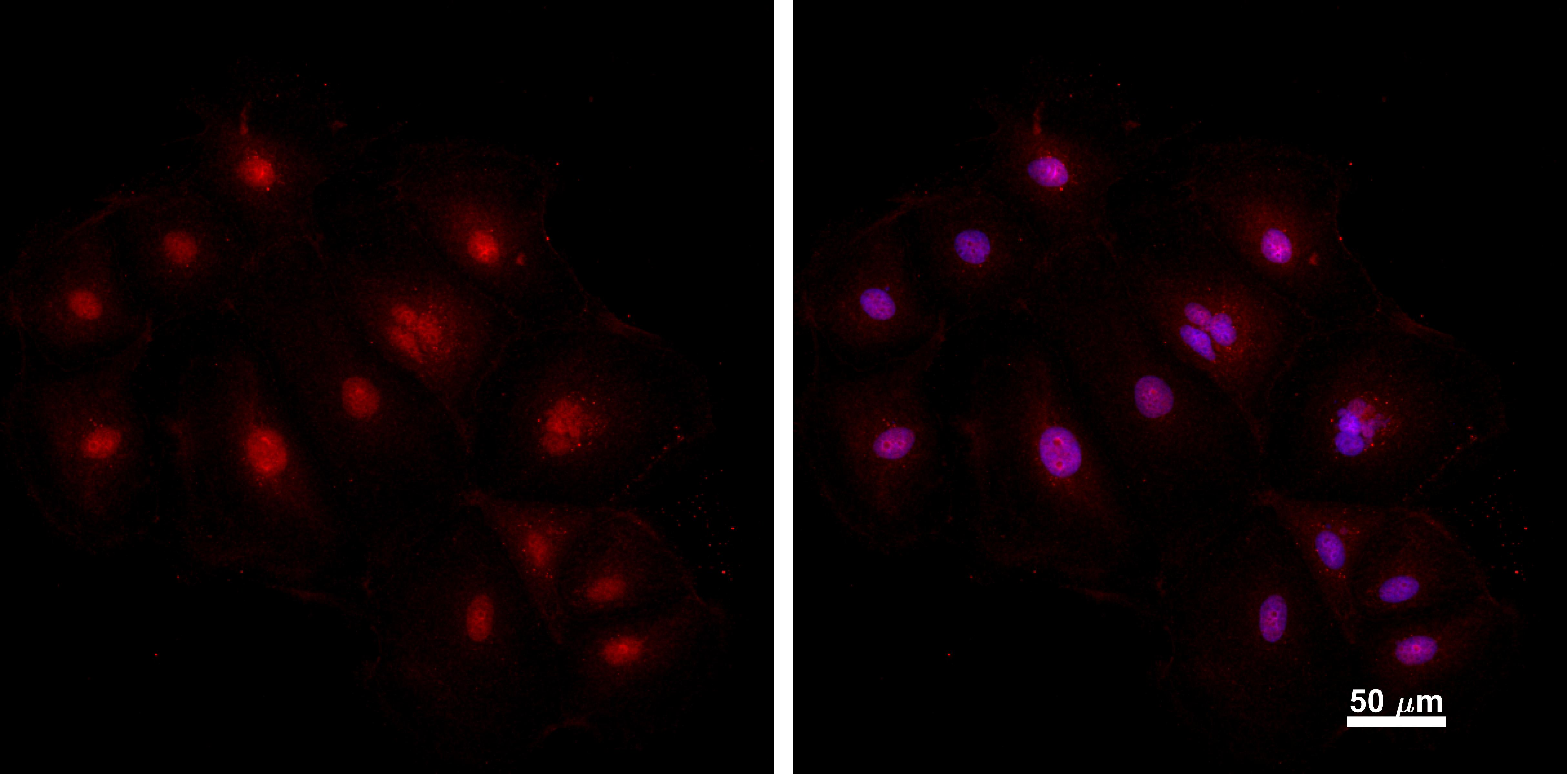 |
FH Kyle (Verified Customer) (02-28-2019) | Clean bands, low background
|
